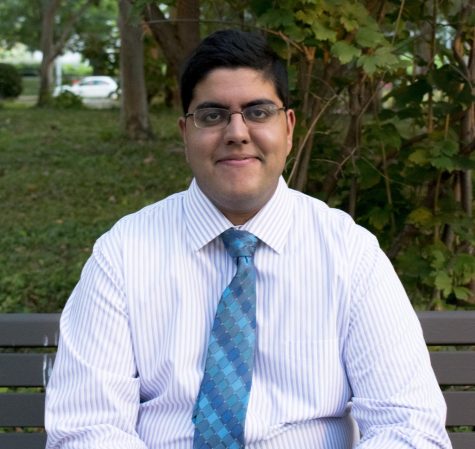Cognitive science researcher studies how to mentor others
April 18, 2014
Dr. Anthony Jack, an associate professor of cognitive science, psychology and philosophy, is trying to find out what makes a mentor a mentor.
Jack recently released a collaborative review paper on research involving leadership styles. He studies the difference in direction that can be given to mentoring others.
According to Jack, there are two opposing mental directions a mentor can send a mentee. The first is to view a person with a sense of purpose. In that they’re working on their requirements to better themselves and to indulge their interests. The opposite course is to view a person as more task-oriented. In this a mentor is giving a person a set of objects to complete.
To help explain, Jack provides an example that hits home for many students.
“We can look at you as a student as to, how are you doing at getting a certain qualification for your CV,” he said. “Another attitude toward education is to ask how we are developing you to be in a position so that you can actually achieve what you want.”
The first gives a person a sense of autonomy, while the other removes this human-aspect from his or her work.
“Everything becomes unimportant in meeting those targets, ” he noted.
The review paper itself summarizes research and academic work that has been done about leadership since the 1950s and maps it onto work that neuroscientists have done.
This lining of research is striking similar to Jack’s background. As an undergraduate at Oxford University, he received a B.S.E philosophy and psychology.
He then went to London where he received his Ph.D in experimental psychology. In London, brain imaging was taking off and so he received training in that work. The same work brought him to America, at the University of Washington in St. Louis.
At the beginning, he didn’t know that this was the path that he would go down.
“I thought I wanted to be a philosopher, which I still kind of am. I’ve always been most interested in concepts, ideas that change your frame for thinking about things,” he said.
Overall now, his work concentrates on how a physical view of the world allows for an understanding that gives people objectives in manipulating it for themselves. He contrasts it with the other view of a human, ethical view of the world.
“The way we carve up the world with an ethical compass is very different from the way we carve it up in a physical way,” he said.
Having released the paper, Jack plans to build on a yet-unpublished study that he recently completed.
His first study involves studying student’s emotional responses and the results of thinking about their future academic career.
He plans to do a study that measures student’s brain activity in this specific area as they think about their undergraduate studies and plans for the future. He will compare this data to how they perform in their studies. By increasing activity in this part of the brain, Jack hopes to reduce the amount of stress students have and measure that by their relative academic performance.
He also hopes to study ethical behavior, particularly ethical blindness. This mental state is the result of persons taking in an overly physically oriented view of the world, resulting in them ignoring the humane aspect.
The juxtaposition of the two sides of goal orientation couldn’t be greater than that of his the inside of his modern office and the stunning view of the outdoor world.


